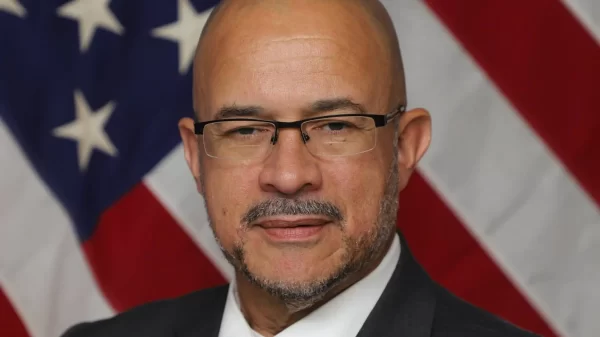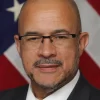By Brandon Moseley
Alabama Political Reporter
After months of Iowa campaigning, candidates visiting diners, debates, and over-hyped events, the GOP Republican Caucus is finally over. The results are in and we have few answers. Former Massachusetts Governor Mitt Romney got roughly the same number of votes as he did four years ago but this time it was enough for Mitt to edge out former Pennsylvania Senator Rick Santorum by just eight votes.
The top two finishers each received 25 percent of the vote. Gov. Romney had 30,015 and Sen. Santorum had 30,007 votes. The 76-year-old Texas Congressman Ron Paul finished third with 26,219 votes (21 percent). Former Speaker of the House, Newt Gingrich from Georgia got 16,251 votes (13 percent). Texas Governor Rick Perry finished fifth with 12,604 votes (10 percent). Minnesota Congresswoman Michele Bachman got just 6,073 votes (5 percent). Former Governor of Utah, Jon Huntsman received just 745 votes (1 percent).
Three weeks before the caucus, Speaker Gingrich had been leading in some polls, while Sen. Santorum had been languishing at the bottom of the polls for months. Since then Iowa’s air waves had been filled with negative ads attacking Gingrich’s past positions and alleged past ethical lapses. Many of those ads were paid for by the Gov. Romney aligned Super Pac ‘Restore Our Future.’ Sen. Santorum who had little money but had worked long and hard in the small state was the big beneficiary of these attack ads and he soared as conservative and evangelical Iowans deserted the Gingrich camp for Sen. Santorum.
The challenge for Speaker Gingrich going forward is to hold on to his lead in the polls in the South Carolina Republican Primary. Senator Santorum on the other hand is hoping that momentum from his unexpected victory will lead to an influx of donations and volunteers and that he can win over conservative voters in South Carolina like he did in Iowa and then that translates into growing support as he goes deeper into the primary season. If Speaker Gingrich, Sen. Santorum, and Gov. Perry split the “tea party” and Christian conservative votes going forward then the more moderate Gov. Romney can win Republican primaries with as little as 25-30 percent of the Republican vote.
Gov. Mitt Romney has more organization and more money to spend on a fifty state primary season than Sen. Santorum has at this point and Gov. Romney is defending a strong lead in the polls for the New Hampshire Primary next week. Gov. Romney’s preferred path to the White House would be to follow his tie in Iowa with a crushing win in New Hampshire and a surprise win in South Carolina leading to growing momentum that leads to victories in Florida and a short primary season.
Gov. Romney has to convince Republican voters that he has the best chance of defeating President Obama and that he is conservative enough for them to live with a Romney candidacy. The biggest risk to a Romney campaign is that the divided conservative factions coalesce behind one candidate and the battle extends all the way to the Republican convention where anything could happen.
Governor Rick Perry is going to South Carolina where his candidacy likely hinges on doing well in that first southern state. A poor performance there and there won’t be much momentum to build on going forward for the Texas Governor that entered the Presidential race late, rose to the top of the polls early, but then struggled through a series of debate gaffes that cost his campaign much of that early momentum.
After her disappointing finish in Iowa, Michele Bachmann announced yesterday that she was dropping out of the race and was suspending her campaign. “Last night the people of Iowa spoke with a very clear voice and so I have decided to stand aside.” This summer, Rep. Bachmann had won the Iowa straw poll and appeared to be one of the favorites; but her campaign floundered during the fall.
Rep. Ron Paul has dedicated support from libertarian leaning Republicans who favor a less active American role in the world and a much smaller role for the federal government. It is hard to see how Rep. Paul can build on that base and he himself has admitted that his victory is unlikely. His challenge will be trying to convince southern voters who tend to be a little more hawkish to embrace that foreign policy agenda which Speaker Gingrich has called “dangerous.” Rep. Paul has responded by calling Gingrich a “chicken hawk.”
Gov. Jon Huntsman neglected Iowa and is staking his candidacy on doing well in New Hampshire where he is focused most of his efforts. A New Hampshire win or a strong second gives him momentum going forward into South Carolina. This is a similar strategy to what Senator John McCain used four years ago where he finished fourth in Iowa but defeated Gov. Romney in New Hampshire propelling him going forward to his eventual victory in the 2008 Republican Primary Season.
Winning the Republican Party Nomination requires amassing 1,144 delegates to the Republican Convention and the vast majority of those delegates have yet to be awarded. The winner of the Republican nomination will then have to face Democratic Party incumbent President Barack H. Obama in the November General Election.






















































